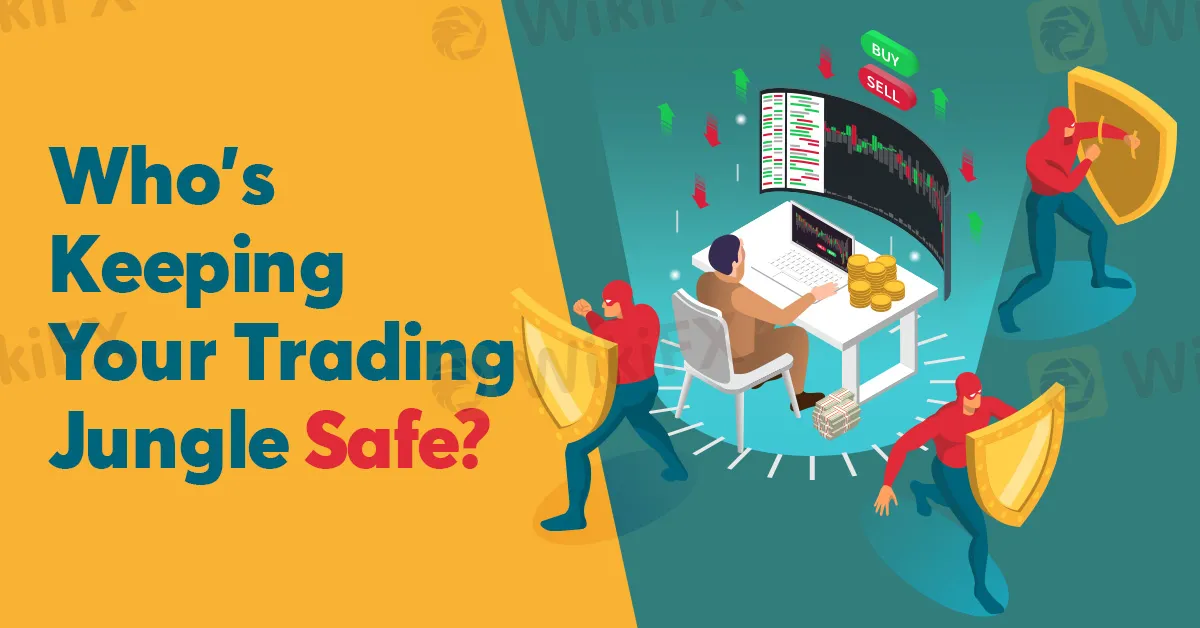简体中文
繁體中文
English
Pусский
日本語
ภาษาไทย
Tiếng Việt
Bahasa Indonesia
Español
हिन्दी
Filippiiniläinen
Français
Deutsch
Português
Türkçe
한국어
العربية
Who’s Keeping Your Trading Jungle Safe?
Abstract:Global financial regulators safeguard your trading field, but do you know which of them are the main watchdogs of the online trading industry?

The allure of online trading in forex and cryptocurrencies is undeniable. The potential for quick profits and freedom from traditional financial constraints draws millions into this dynamic arena. But amidst the thrill, one crucial aspect often gets overlooked: regulation.
In a world of decentralized digital assets and faceless platforms, who ensures fair play and protects your hard-earned capital? That's where the financial regulations step in.
Here, we introduce the 5 Global Guardians of Financial Integrity:

America's financial watchdog, the SEC, wields significant power. It oversees public companies, stock exchanges, and investment advisors, ensuring transparency and combatting market manipulation. While primarily focused on traditional securities, the SEC has increasingly set its sights on crypto, issuing guidelines and cracking down on illegal activity.

Renowned for its proactive approach, the FCA regulates all aspects of financial services in the UK, including forex and crypto platforms. Its robust licensing process and emphasis on consumer protection make it a gold standard for financial regulation.

Another champion of investor safety, ASIC actively monitors Australia's financial landscape, with crypto trading platforms within its purview. Its “no-nonsense” approach has earned it a reputation for swift action against non-compliant firms.

Overseeing a nation known for its tech-savvy and crypto-curious population, the JFSA plays a crucial role in regulating digital asset exchanges. Its detailed licensing requirements and focus on investor education make it a vital player in ensuring responsible trading practices.

This pan-European regulator may not be a single entity, but its influence is far-reaching. ESMA coordinates financial regulation across the EU, including setting harmonized standards for crypto asset platforms. Its efforts ensure a level playing field for traders across the continent.
Why Regulation Matters:
While the promise of decentralization in the digital asset world might sound tempting, a lack of oversight can be a perilous recipe for disaster. Choosing a broker regulated by a reputable authority provides layers of protection, including:
Ensured fair market practices: Regulators implement rules to prevent market manipulation and ensure honest trading environments.
Dispute resolution mechanisms: Should issues arise, regulated brokers offer established channels for fair and impartial resolution.
Enhanced security: Regulatory compliance often goes hand-in-hand with robust security measures, safeguarding your funds and personal information.

At WikiFX, we understand the pivotal role that regulation plays in safeguarding traders' interests. As a global forex broker regulatory query platform, we empower traders by providing comprehensive and transparent information about brokers' regulatory standings. Through our free platform, traders can easily access vital details about regulatory compliance, ensuring they choose brokers adhering to recognized authorities. We enable users to make informed decisions, promoting transparency, and facilitating a safer trading environment. With WikiFX, you can navigate the dynamic world of digital assets confidently, knowing your investments are in the hands of regulated and reputable brokers.
In conclusion, while the thrill of online trading beckons, remember, your financial safety should never be left to chance. Choose a broker regulated by a recognized authority, one that operates with transparency and adheres to strict ethical standards. Only then can you navigate the exciting world of digital assets with confidence, knowing your money is in good hands. Trade smart, trade safe, and always choose regulation as your compass on this financial frontier.

Disclaimer:
The views in this article only represent the author's personal views, and do not constitute investment advice on this platform. This platform does not guarantee the accuracy, completeness and timeliness of the information in the article, and will not be liable for any loss caused by the use of or reliance on the information in the article.
Read more

March Oil Production Declines: How Is the Market Reacting?
Oil production cuts in March are reshaping the market. Traders are closely watching OPEC+ decisions and supply disruptions, which could impact prices and future production strategies.

How to Calculate Leverage and Margin in the Forex Market
Leverage amplifies both potential profits and risks. Understanding how to calculate leverage and margin helps traders manage risks and avoid forced liquidation.

USD/INR, USD/PHP Forecast April 2025
The global forex markets are bracing for April 2025 with divergent forecasts for key emerging market pairs. In particular, the USD/INR and USD/PHP pairs have attracted significant attention amid a mix of central bank interventions, evolving U.S. policy signals, and regional economic shifts. In this article, we review multiple forecasts, examine the driving factors, and outline what traders might expect as the month unfolds.

April Forex Trends: EUR/USD, GBP/USD, USD/JPY, AUD/USD, USD/CAD Insights
Know April’s forex seasonality trends for EUR/USD, GBP/USD, USD/JPY, AUD/USD, and USD/CAD. Historical insights and key levels to watch in 2025.
WikiFX Broker
Latest News
Exposing the Top 5 Scam Brokers of March 2025: A Closer Look by WikiFX
Gold Prices Climb Again – Have Investors Seized the Opportunity?
Webull Launches SMSF Investment Platform with Zero Fees
Australian Regulator Warns of Money Laundering and Fraud Risks in Crypto ATMs
The Withdrawal Trap: How Scam Brokers Lure Victims into Paying More
FCA to Investors: Think Twice Before Trusting These Brokers
Trump\s tariffs: How could they affect the UK and your money
Trump gambles it all on global tariffs he\s wanted for decades
HTFX Spreads Joy During Eid Charity Event in Jakarta
How Will the Market React at a Crucial Turning Point?
Currency Calculator







